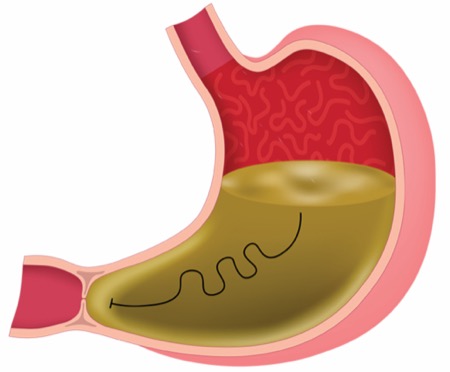DENVER—A substantial proportion of patients diagnosed with gastroparesis may have normal gastric emptying or may have dysmotility in multiple regions of the gastrointestinal tract, according to research presented at the 2024 annual meeting of the American Foregut Society.
{RELATED-VERTICAL}In a study including more than 3,000 patients, researchers from Cleveland Clinic found that only 18.3% of those diagnosed with gastroparesis showed isolated gastric delay after ingesting a wireless motility capsule, while 81.7% had normal GI transit or multi-region delays (abstract 44). They noted that the findings reveal limitations in current methods to diagnose gastroparesis and suggested that comprehensive GI motility testing may be needed to improve diagnostic accuracy.
“We found that the standard gastric emptying test, using eggs and toast, is neither reliable nor sufficient,” said lead study author Michael Cline, DO, the medical director for the Cleveland Clinic Foundation. “It also fails to provide information about the rest of the gut below the stomach. Our study showed that almost all gastroparesis patients are constipated.”
As Dr. Cline reported, gastroparesis, a condition characterized by delayed gastric emptying, is estimated to affect up to 1.8% of the global population. Traditionally, diagnosis has relied on symptoms and gastric emptying tests.
For this study, however, Dr. Cline and his co-investigators aimed to analyze the prevalence of lower GI and multi-regional dysmotility in patients with confirmed gastroparesis. They conducted a retrospective review of patients who completed a wireless motility capsule study at Cleveland Clinic from December 2010 to January 2024. All patients had initially tested positive for delayed gastric emptying using four-hour scintigraphy. The team used established cutoff times to determine regional delays in different parts of the GI tract: more than five hours for gastric emptying time, more than six hours for small bowel transit time, and more than 59 hours for colonic transit time. With these criteria, the researchers were able to determine the prevalence of various GI dysmotility subtypes among the study participants.
No Gastric Delay in Majority of ‘Gastroparesis’ Patients
The researchers found that 29.7% of patients showed normal transit times in all GI regions upon retesting. In addition, 30.4% had isolated delays in small-bowel and/or colonic regions without gastric delay. Only 18.3% of patients experienced isolated gastric delay, while 21.7% had delays in the stomach and at least one other region.
“The expectation was that nearly all of these patients would have pure isolated gastric delay,” Dr. Cline said, “but in reality, it’s less than 20%.”
Dr. Cline underscored the implications of these findings, which suggest that current diagnostic methods may be leading to unnecessary surgical interventions.
“These data suggest that only approximately 30% of patients diagnosed with gastroparesis should be considered for surgical intervention,” Dr. Cline noted. “We need to be more selective about which patients we refer to surgeons if we want to achieve the best outcomes from surgical procedures.
“If you don’t do a test of total gut motility, you’re missing the boat,” said Dr. Cline, who noted that the wireless motility capsule used in the study can assess transit times throughout the entire GI tract.
According to Dr. Cline, the availability of such comprehensive testing has become limited since Medtronic discontinued the Smart Pill device (which was used in the study), but there are ongoing efforts to develop new comprehensive GI motility testing methods, including an investigational wireless motility capsule (Atmo) that is under FDA review.
“We’re hoping that it will be launched before the end of 2024,” Dr. Cline said. “It met its end points in the study and was noninferior to Smart Pill.”
Pankaj Jay Pasricha, MD, the chair of the Department of Medicine at Mayo Clinic in Arizona, told Gastroenterology & Endoscopy News that these findings confirm those from recent publications highlighting the clinical importance of colonic and small bowel dysmotility in patients with gastroparesis. In a prospective study of 209 patients with typical symptoms of gastroparesis, Dr. Pasricha said, wireless motility capsule testing showed that 33.5% of patients had impaired colonic transit and 15.5% had delayed small bowel transit (Neurogastroenterol Motil 2018;30[2]:10.1111/nmo.13196). Slow transit was seen in both small and large bowel regions in 23.3% of patients.
Dr. Pasricha also cited a recent gastroparesis review article in Clinical Gastroenterology & Hepatology (2022;20[12]:2684-2695.e3) that concluded that treatment directed at other regions of the gut may be important to mitigate at least some of patients’ symptoms.
—Chase Doyle
Dr. Cline reported no relevant financial disclosures.

